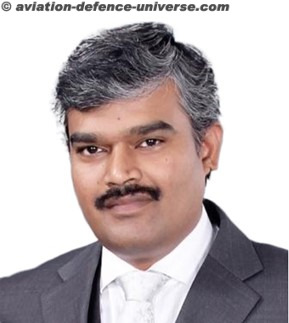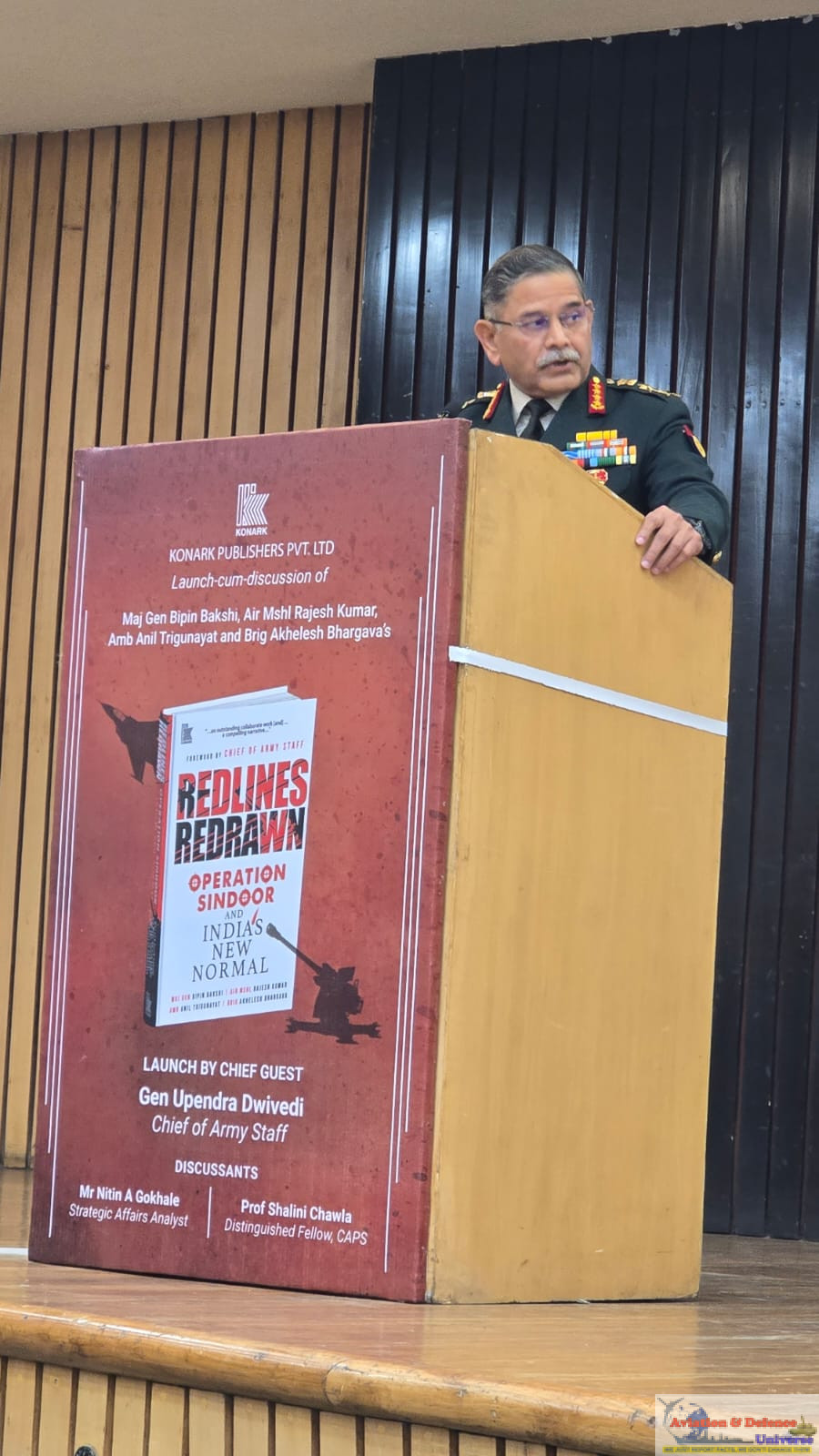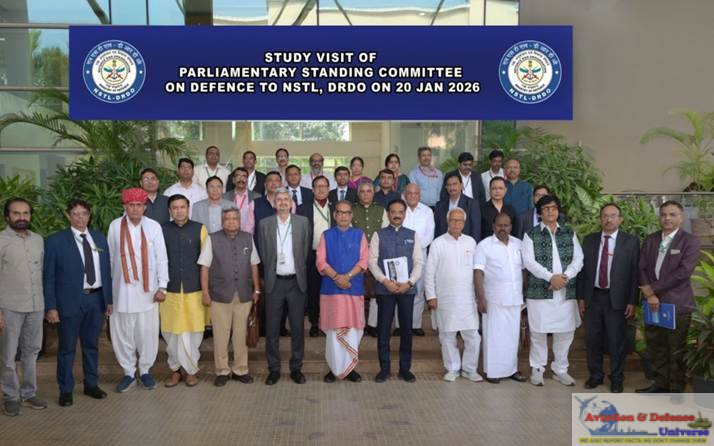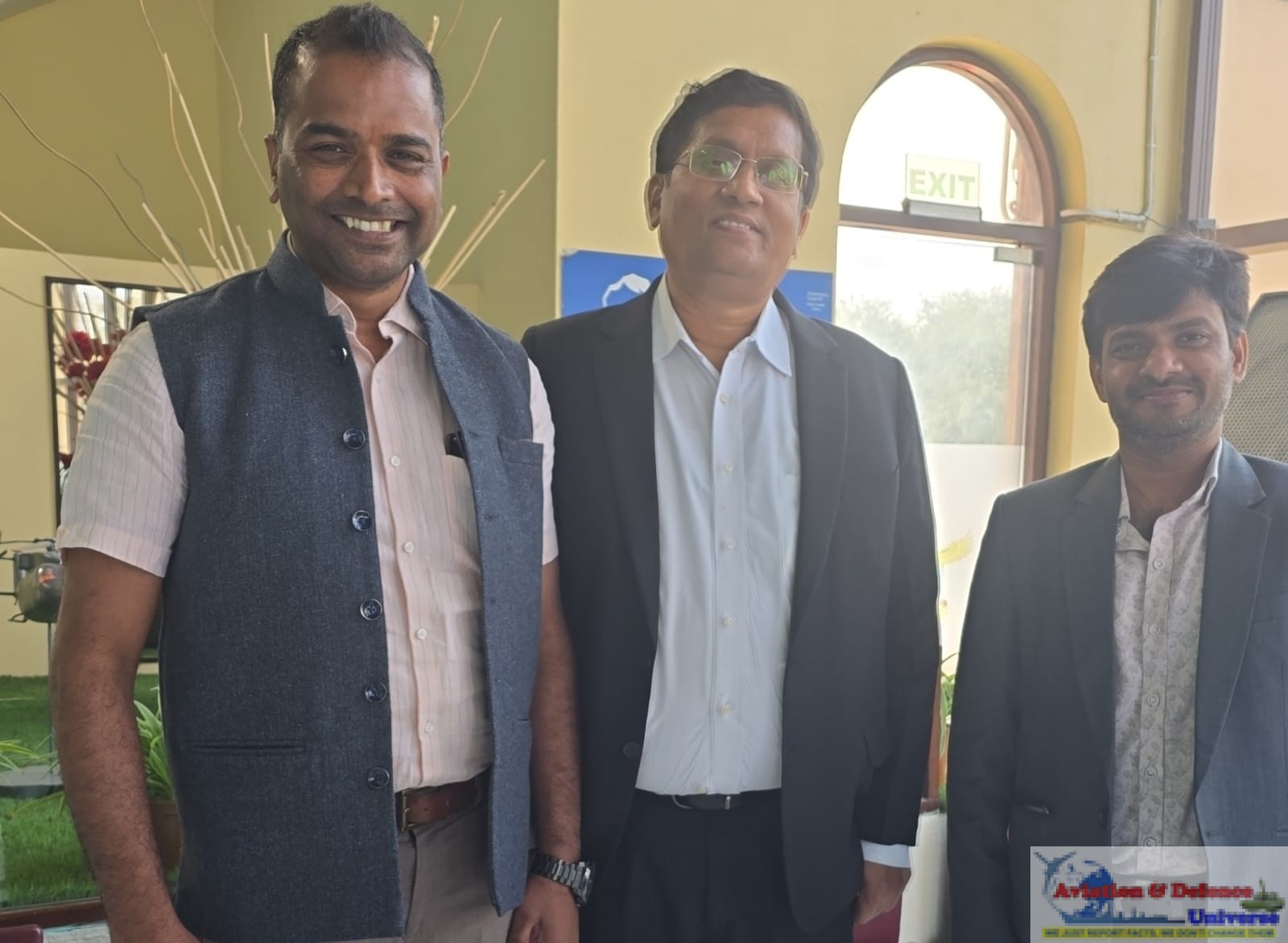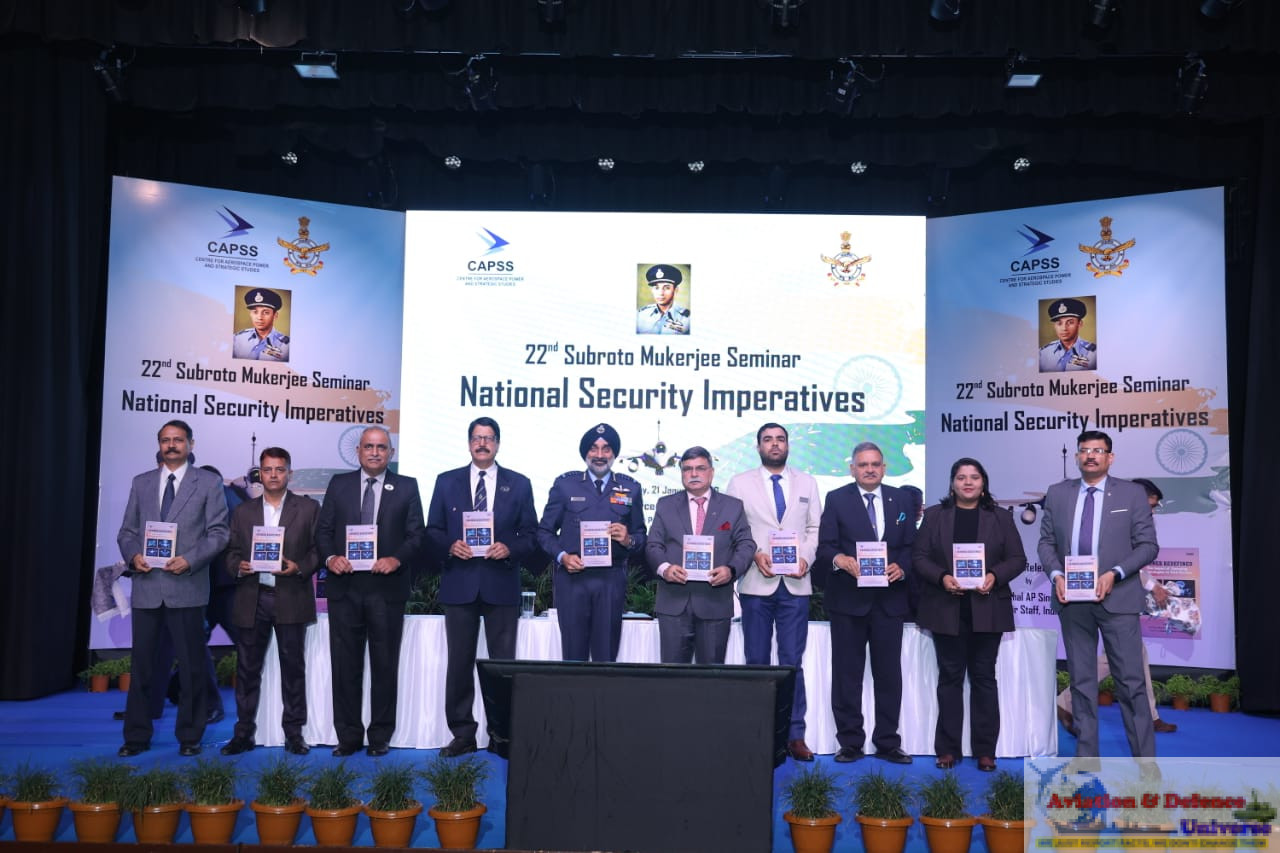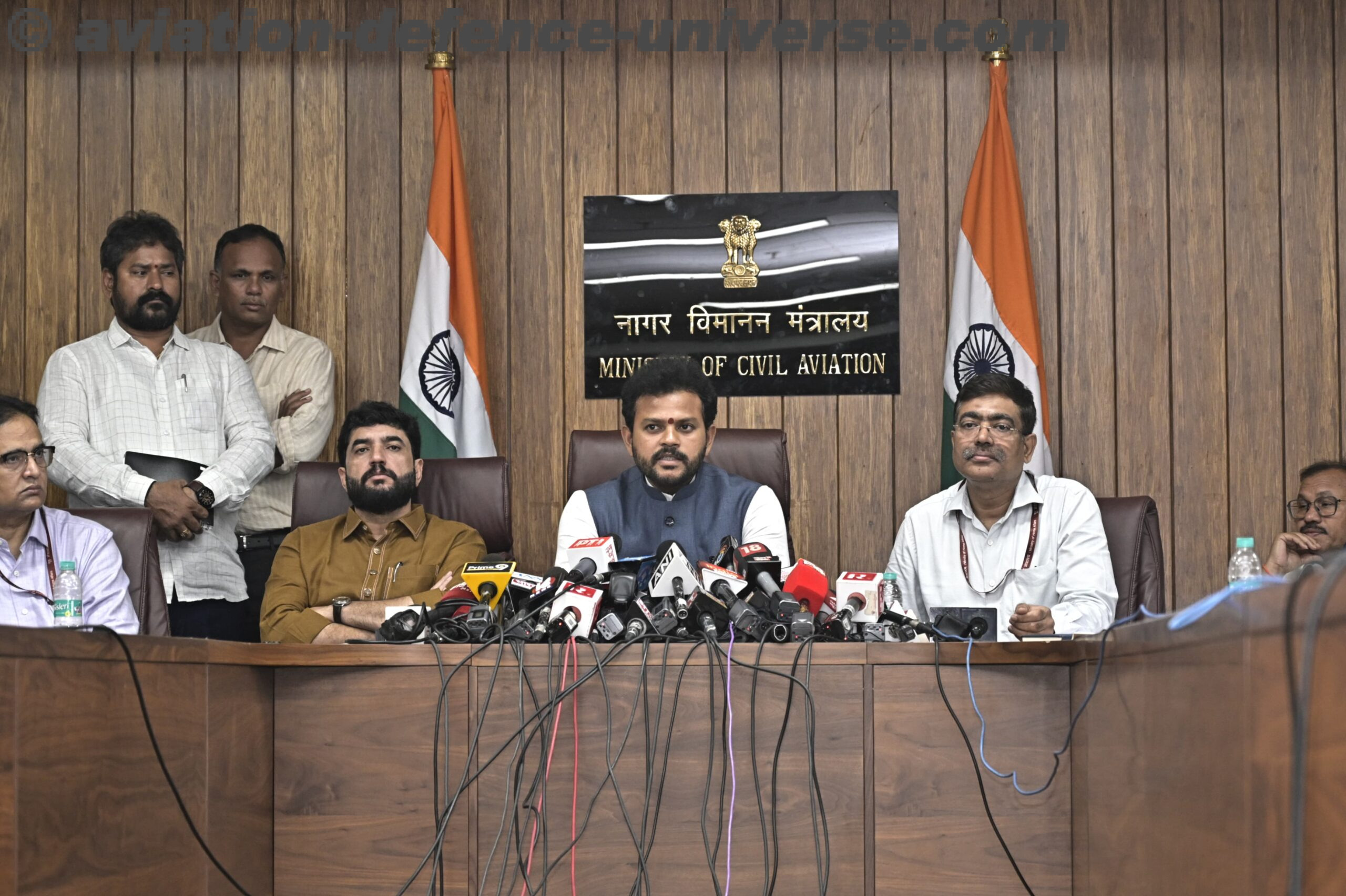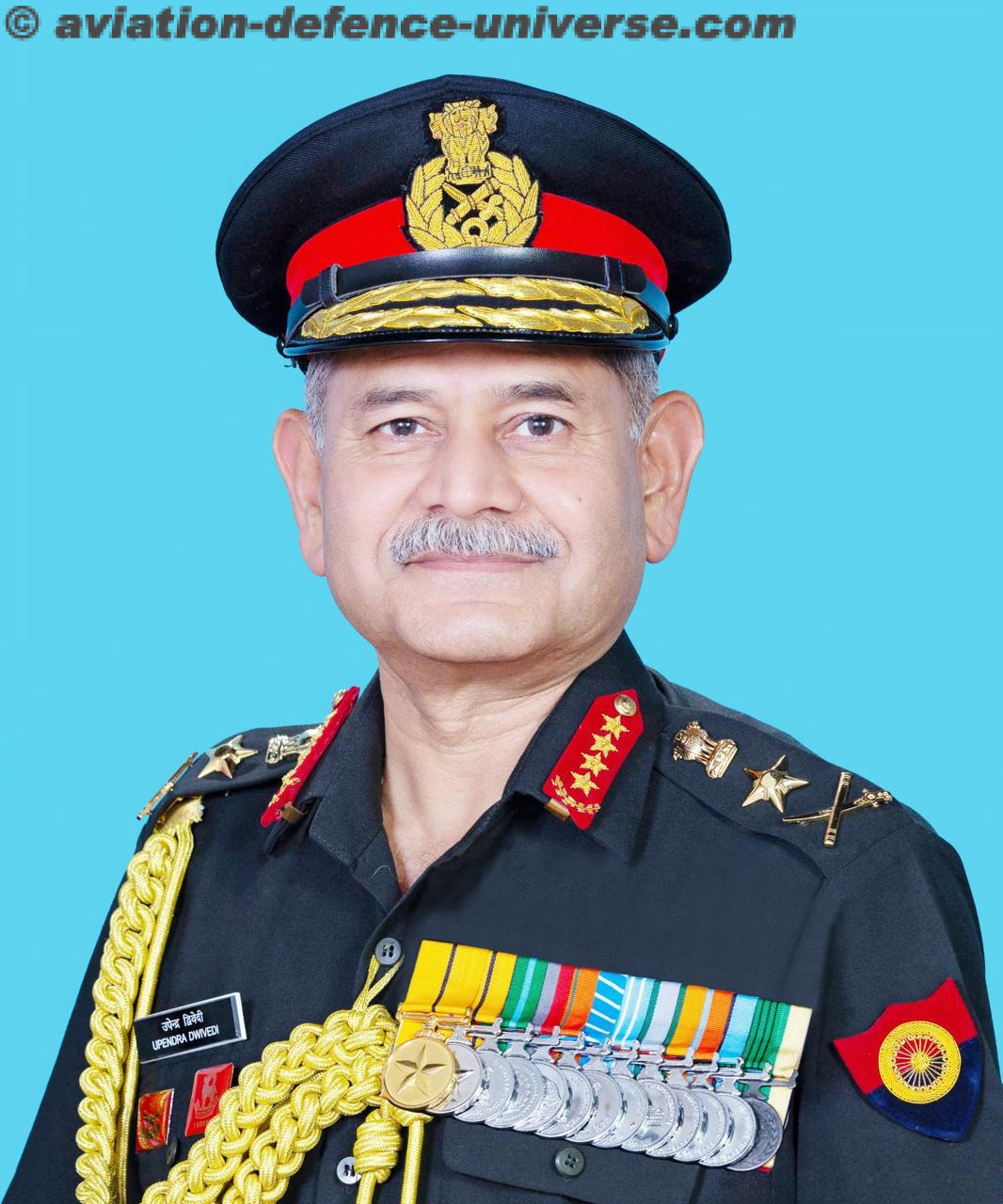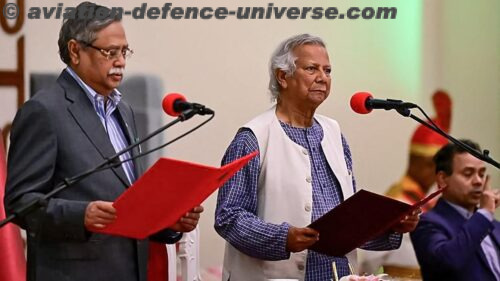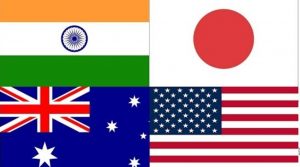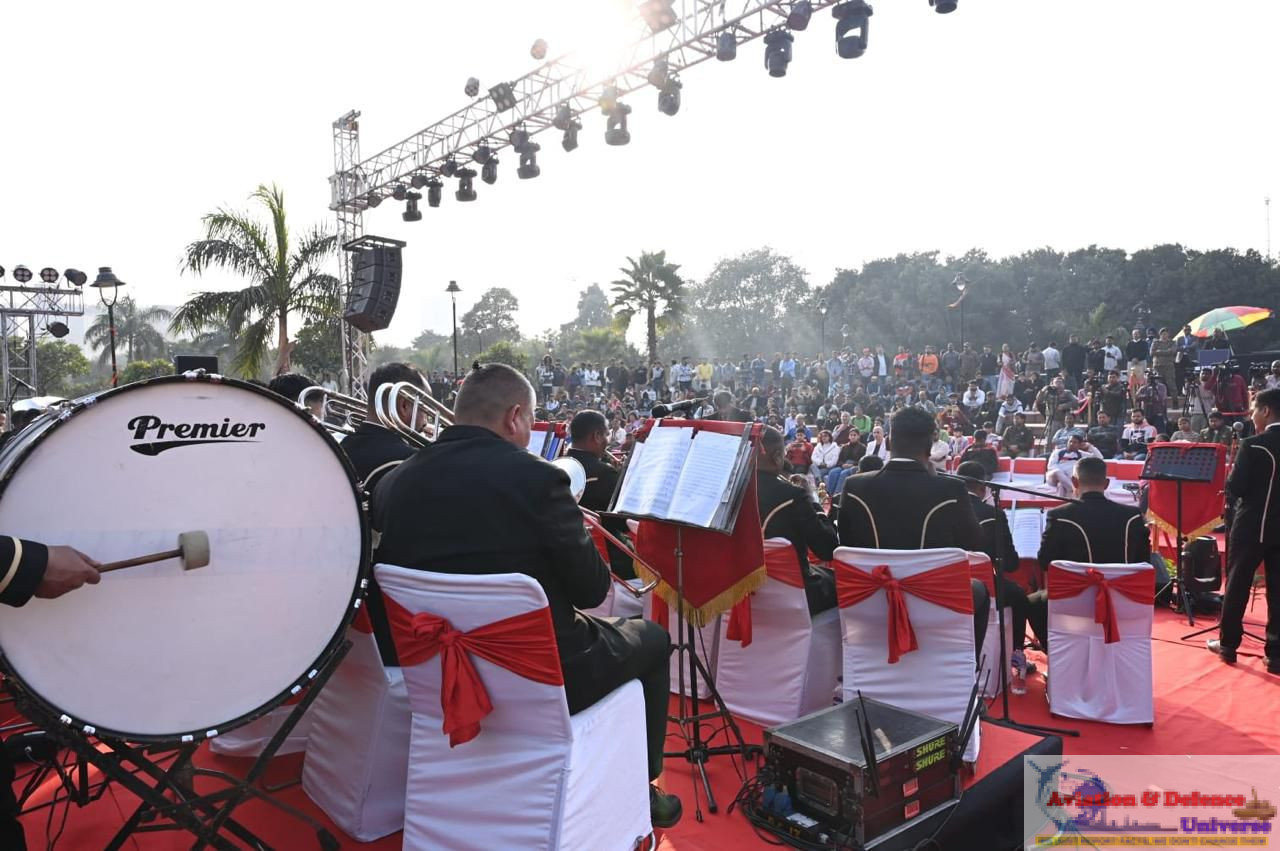- Unelected Yunus Is In Trouble: Khaleda Zia, Sheikh Hasina & Army, All Want His removal
By Jai Kumar Verma

New Delhi. 03 June 2025 The political landscape in Bangladesh is witnessing an extraordinary moment of volatility. Muhammad Yunus, the unelected head of the interim government, is increasingly isolated as pressure builds from across the political spectrum and the military establishment to hold national elections by December 2025. With opposition leaders Khaleda Zia and Sheikh Hasina speaking in unison and Army Chief General Waker-Uz-Zaman urging a return to democratic normalcy, the current dispensation finds itself at odds with the constitutional spirit it was meant to uphold.
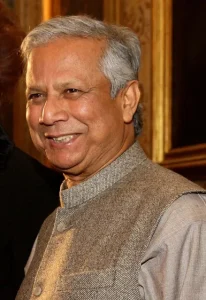 Bangladesh’s interim leader Muhammad Yunus is in trouble as main opposition party leaders including former Prime Minister Khaleda Zia, Chairperson of Bangladesh National Party (BNP), Sheikh Hasina recently deposed Prime Minister and President of Awami League (AL) and Bangladesh Army Chief General Waker-Uz-Zaman all are pressing that Yunus should hold election in December 2025. General Zaman is a professional soldier and he wants that army should not be involved in the civil administration and they should return to the barracks. All three have voiced serious discontentment about the policies of interim government. Khaleda and Hasina criticises the governance and postponing of elections by the interim government, while General Zaman mentions that a humanitarian corridor in Rakhine State of Myanmar would be a security risk for Bangladesh.
Bangladesh’s interim leader Muhammad Yunus is in trouble as main opposition party leaders including former Prime Minister Khaleda Zia, Chairperson of Bangladesh National Party (BNP), Sheikh Hasina recently deposed Prime Minister and President of Awami League (AL) and Bangladesh Army Chief General Waker-Uz-Zaman all are pressing that Yunus should hold election in December 2025. General Zaman is a professional soldier and he wants that army should not be involved in the civil administration and they should return to the barracks. All three have voiced serious discontentment about the policies of interim government. Khaleda and Hasina criticises the governance and postponing of elections by the interim government, while General Zaman mentions that a humanitarian corridor in Rakhine State of Myanmar would be a security risk for Bangladesh.
Hasina also condemns mercy towards the war criminals. Hasina in a virtual address criticised judicial leniency towards extremists and war criminals. While condemning the release of Azharul Islam an important Jamaat-e-Islami (J-e-I) leader, she reiterated that “War criminals are being freed, and those who fought for our independence are now being persecuted. Is this the Bangladesh we fought for?” She also stated that Bangladesh has become “a haven for terrorists.”
Khaleda in a virtual address, at the occasion of the 44th death anniversary of BNP founder former president Ziaur Rahman, said that “Shaheed Ziaur Rahman sacrificed his life to establish democracy and protect the country’s sovereignty. Yet, the path of democracy remains obstructed”. However, she hoped that very soon democracy would again be restored in Bangladesh. She stated that the discontentment against yunus led interim government is increasing in the country. BNP also organised a massive rally in Dacca on 28 May and demanded elections in December this year. Tarique Rahman acting chairman of BNP also said through a virtual address from London that “The national election must be held by December. Preparations must begin immediately”.
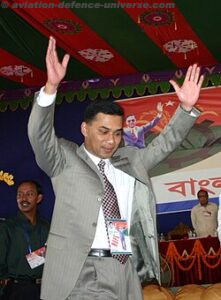 Rahman mentioned that the interim government is delaying the elections under the garb of reforms. The caretaker governments conduct elections withing three months while ten months have passed and the present interim government is not announcing the dates of elections. Tens of thousands of BNP workers gathered at Dacca from all over Bangladesh and protested against interim government and newly constituted National Citizen Party (NCP) which is the creation of students but Yunus is the force behind the new party. NCP pleads that, elections should be held later and interim government should be given more time to reform the country. Government employees also demanded early elections.
Rahman mentioned that the interim government is delaying the elections under the garb of reforms. The caretaker governments conduct elections withing three months while ten months have passed and the present interim government is not announcing the dates of elections. Tens of thousands of BNP workers gathered at Dacca from all over Bangladesh and protested against interim government and newly constituted National Citizen Party (NCP) which is the creation of students but Yunus is the force behind the new party. NCP pleads that, elections should be held later and interim government should be given more time to reform the country. Government employees also demanded early elections.
Army Chief General Zaman also publicly criticised interim government’s plan of a corridor from Bangladesh’s Cox Bazar to Rakhine State of Myanmar. While disparaging the idea of corridor he revealed that it is a direct threat to the sovereignty of Bangladesh. He also declared that although it is a security issue but the interim government has not consulted the army. He also charged that this plan would destabilise the region. Yunus government withdrawn the plan because of stiff opposition from the army. Zaman claims that the corridor would create a buffer zone which would be controlled by foreign powers and it would undermine the authority of Bangladesh and would be a security risk. United States support the corridor as it wants to reduce the Beijing’s influence, as China under Belt and Road Initiative (BRI) has strategic infrastructure investments in Rakhine state.
Recently Chiefs of Army, Navy & Air Force met Yunus and mentioned that elections should be held by December and the elected government should take the charge of the country. After this meeting Zaman also held a meeting of senior army officers at Dacca and stated that the interim government is taking strategic decisions without informing the defence forces which is not correct.
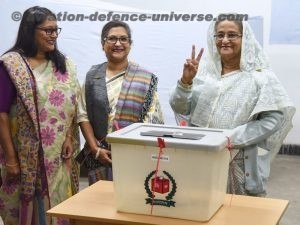 At present Yunus is on Japan tour, which is 10th foreign tour in 10 months, stated that he would hold elections between December 2025 to June 2026 but it would depend on the progress of reforms needed in the country. Few days back the advisory council also issued a statement after an unscheduled meeting that the interim government was assigned to conduct three jobs including elections, reforms and justice. These jobs can be lingered as justice means trial of Sheikh Hasina and other AL leaders. Hasina is in India and when she will return back to Bangladesh is not clear. Same way reforms can be stretched for unlimited period.
At present Yunus is on Japan tour, which is 10th foreign tour in 10 months, stated that he would hold elections between December 2025 to June 2026 but it would depend on the progress of reforms needed in the country. Few days back the advisory council also issued a statement after an unscheduled meeting that the interim government was assigned to conduct three jobs including elections, reforms and justice. These jobs can be lingered as justice means trial of Sheikh Hasina and other AL leaders. Hasina is in India and when she will return back to Bangladesh is not clear. Same way reforms can be stretched for unlimited period.
For India, the developments in Dhaka are more than a domestic affair—they are a matter of strategic consequence. Bangladesh’s tilt towards China and Pakistan, under Yunus’s stewardship, marks a stark departure from the steady and cooperative ties nurtured during Hasina’s tenure. From allowing Chinese infrastructural ambitions in sensitive border areas like Lalmonirhat to cultivating deeper contacts with Pakistani intelligence officials, the interim government’s moves signal a recalibration of Bangladesh’s foreign policy—one that may not align with India’s regional security interests.
The situation in Bangladesh under the interim leadership of Muhammad Yunus is drawing regional concern, particularly from India. With a fragile domestic climate, rising public dissent, and growing international unease, the path forward must include a return to democratic norms. Holding timely elections and restoring an elected government are crucial not just for Bangladesh’s internal stability, but also for preserving peace and strategic balance in South Asia. India continues to advocate for a peaceful, democratic, and mutually respectful partnership with its eastern neighbour.
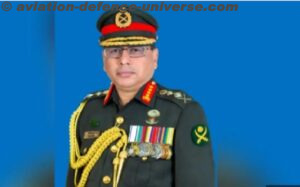 Bangladesh interim government criticises Hasina as well as the policies of her government. Yunus also claims that the economic achievements propagated by Hasina are fake and concocted. Followers of Yunus also criticises army chief Zaman as he is insisting for elections in December 2025. Yunus and his supporters want to postpone the elections hence Yunus threatened to resign but Bangladesh watchers claim that it was a fake threat and he has no intention to resign. In fact, radicals, fundamentalists, students and few important You Tube influencers have launched a tirade against Zaman, Hasina and India. NCP and Islamic political parties including J-e-I are the main force behind instigating masses against General Zaman. Bangladesh watchers claim that mob is ready to start violent protests against army. There are reports that Lieutenant General Mohammad Faizur Rahman staged a failed coup against General Zaman in January this year. People criticise Zaman as he is related to deposed Prime Minister Hasina.
Bangladesh interim government criticises Hasina as well as the policies of her government. Yunus also claims that the economic achievements propagated by Hasina are fake and concocted. Followers of Yunus also criticises army chief Zaman as he is insisting for elections in December 2025. Yunus and his supporters want to postpone the elections hence Yunus threatened to resign but Bangladesh watchers claim that it was a fake threat and he has no intention to resign. In fact, radicals, fundamentalists, students and few important You Tube influencers have launched a tirade against Zaman, Hasina and India. NCP and Islamic political parties including J-e-I are the main force behind instigating masses against General Zaman. Bangladesh watchers claim that mob is ready to start violent protests against army. There are reports that Lieutenant General Mohammad Faizur Rahman staged a failed coup against General Zaman in January this year. People criticise Zaman as he is related to deposed Prime Minister Hasina.
The NCP leaders as well as JeI leaders understand that if elections are held in December, BNP would get absolute majority and they would lose the elections hence they want to gain some more time so that they can prepare for the elections. The interim government of Yunus has less support within the country and more support from abroad. Pakistan and its ISI is rendering all out support to Yunus, China which wants to encircle India is enhancing its influence in Bangladesh. Large number of Chinese companies have set up their businesses in Bangladesh and Beijing wants that Yunus should prolong his rule. Few analysts claim that Yunus is pro America and he was installed by Biden government.
 The close relations between India and Bangladesh during Hasina’s time, worsened after Yunus took over as Chief Advisor of the interim government of Bangladesh on August 8, 2024. Yunus has blamed India for disrupting Bangladesh, claiming that there are “relentless efforts to destabilise Bangladesh, both internally and externally,”. He also mentioned that it created a “war-like situation”. Yunus also disparaged India for adopting a narrative that portrays all opposition parties as Islamist. Yunus has banned the Awami League, which was not liked by India. Yunus inculcated close relations with Islamabad and senior officers of Inter Services Intelligence (ISI) visited Bangladesh. Indian security agencies feel that ISI may resume anti-India operations from Bangladesh. Not only this Yunus visited first to China after breaking the long-established tradition of visiting India first. Yunus also appreciated China for the financial assistance given to Bangladesh. However, India dismissed the allegations of Yunus and mentioned that the interim government is blaming India just to distract public attention from increasing day to day problems. Delhi made it clear that it desires to have positive and constructive relations with its eastern neighbour and wants that there should be free and fair elections in the country. As the interim government is supported by J-e-I which is pro-Pakistan and anti-India hence it is involved in anti-India rhetoric and persecution of minorities especially Hindus.
The close relations between India and Bangladesh during Hasina’s time, worsened after Yunus took over as Chief Advisor of the interim government of Bangladesh on August 8, 2024. Yunus has blamed India for disrupting Bangladesh, claiming that there are “relentless efforts to destabilise Bangladesh, both internally and externally,”. He also mentioned that it created a “war-like situation”. Yunus also disparaged India for adopting a narrative that portrays all opposition parties as Islamist. Yunus has banned the Awami League, which was not liked by India. Yunus inculcated close relations with Islamabad and senior officers of Inter Services Intelligence (ISI) visited Bangladesh. Indian security agencies feel that ISI may resume anti-India operations from Bangladesh. Not only this Yunus visited first to China after breaking the long-established tradition of visiting India first. Yunus also appreciated China for the financial assistance given to Bangladesh. However, India dismissed the allegations of Yunus and mentioned that the interim government is blaming India just to distract public attention from increasing day to day problems. Delhi made it clear that it desires to have positive and constructive relations with its eastern neighbour and wants that there should be free and fair elections in the country. As the interim government is supported by J-e-I which is pro-Pakistan and anti-India hence it is involved in anti-India rhetoric and persecution of minorities especially Hindus.
Under Yunus’s interim rule, Bangladesh has shifted significantly in its diplomatic orientation. Deepening ties with Beijing and Islamabad, including proposals to allow China to build key infrastructure near the India-Bangladesh border, have raised red flags in New Delhi. The proposed airfield in Lalmonirhat, near the sensitive Siliguri Corridor, is viewed by Indian security experts as a serious concern that could compromise national security and regional balance.
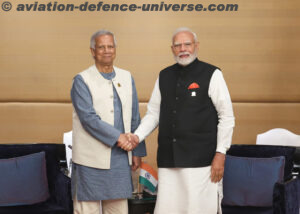 Tensions have also been exacerbated by Yunus’s public criticisms of India and his administration’s alignment with Islamist groups known for their anti-India stance. The ban on the Awami League, coupled with increasing persecution of minorities and inflammatory rhetoric against India, has further strained relations. Analysts in Delhi see these developments as attempts by the interim regime to rally hardline domestic support while deflecting attention from growing internal dissatisfaction. India’s concerns are not only strategic but also humanitarian. The interim government’s reluctance to announce election dates, the presence of pro-Pakistan elements in key policy circles, and a foreign policy increasingly aligned with China’s interests signal a departure from Dhaka’s traditionally strong ties with New Delhi. These shifts could disrupt longstanding cooperation on border security, trade, and regional connectivity initiatives under India’s Act East Policy.
Tensions have also been exacerbated by Yunus’s public criticisms of India and his administration’s alignment with Islamist groups known for their anti-India stance. The ban on the Awami League, coupled with increasing persecution of minorities and inflammatory rhetoric against India, has further strained relations. Analysts in Delhi see these developments as attempts by the interim regime to rally hardline domestic support while deflecting attention from growing internal dissatisfaction. India’s concerns are not only strategic but also humanitarian. The interim government’s reluctance to announce election dates, the presence of pro-Pakistan elements in key policy circles, and a foreign policy increasingly aligned with China’s interests signal a departure from Dhaka’s traditionally strong ties with New Delhi. These shifts could disrupt longstanding cooperation on border security, trade, and regional connectivity initiatives under India’s Act East Policy.
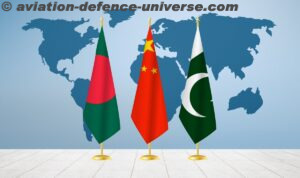 Yunus supporters are criticising India for many reasons. Firstly, for giving shelter to Hasina and not adhering to extradition requests made by the interim government. Dacca also alleges that India interferes in the internal affairs of the country, there are border clashes and Bangladesh was critical of India’s Citizenship Act. The Muslim fundamentalist elements in Bangladesh are also critical of India. Although during Hasina’s time both India and Bangladesh tried to resolve border disputes but still there is ill will in the residents of border areas. There are also problems about water sharing. Bangladeshis feel that there is cultural hegemony of India and Indian media does not cover Bangladeshi events. However, there is need of reconciliation and should try to resolve as many issues as feasible peacefully and both the countries should try to maintain mutually beneficial relationship.
Yunus supporters are criticising India for many reasons. Firstly, for giving shelter to Hasina and not adhering to extradition requests made by the interim government. Dacca also alleges that India interferes in the internal affairs of the country, there are border clashes and Bangladesh was critical of India’s Citizenship Act. The Muslim fundamentalist elements in Bangladesh are also critical of India. Although during Hasina’s time both India and Bangladesh tried to resolve border disputes but still there is ill will in the residents of border areas. There are also problems about water sharing. Bangladeshis feel that there is cultural hegemony of India and Indian media does not cover Bangladeshi events. However, there is need of reconciliation and should try to resolve as many issues as feasible peacefully and both the countries should try to maintain mutually beneficial relationship.
Both the countries should have peaceful coexistence so that both can achieve economic prosperity. Both governments should address the apprehensions of their people and try to develop trust and understanding between both the countries. Bangladesh should not provide opportunities to Pakistan and China which may hamper India’s security. Yunus who is an unelected leader should hold elections at the earliest and should handover power to the elected representatives. The elected representatives would constitute the government, which would make necessary reforms and would do justice to the culprits.
 What compounds the concern is the rise of anti-India rhetoric from segments aligned with the interim regime, often coupled with the marginalisation of secular and minority voices. The banning of the Awami League, growing radicalisation, and Yunus’s direct criticism of India’s policies all reflect a narrative that seeks to externalise Bangladesh’s internal failings. For New Delhi, this represents not just a diplomatic setback but a potential threat to the stability of its eastern frontier.
What compounds the concern is the rise of anti-India rhetoric from segments aligned with the interim regime, often coupled with the marginalisation of secular and minority voices. The banning of the Awami League, growing radicalisation, and Yunus’s direct criticism of India’s policies all reflect a narrative that seeks to externalise Bangladesh’s internal failings. For New Delhi, this represents not just a diplomatic setback but a potential threat to the stability of its eastern frontier.
India must respond with a mix of strategic patience and diplomatic firmness. While it must continue to champion democratic restoration in Bangladesh, it must also quietly reinforce regional coalitions that uphold secularism, transparency, and sovereignty. The long-term objective should remain unchanged: a democratic, stable, and neighbourly Bangladesh, free from the manipulations of outside powers and in harmony with its historic partners. The people of Bangladesh deserve to choose their own leaders through free and fair elections. That is not merely a democratic ideal—it is a regional necessity.
(Jai Kumar Verma is a Delhi-based strategic analyst and member of United Services Institute of India and The Manohar Parrikar Institute for Defence Studies and Analyses. The views in the article are solely the author’s. He can be contacted at editor.adu@gmail.com)








